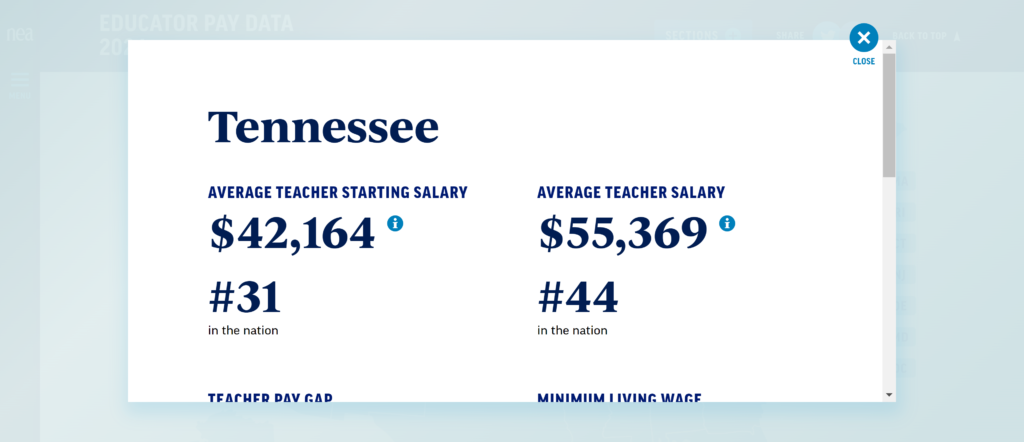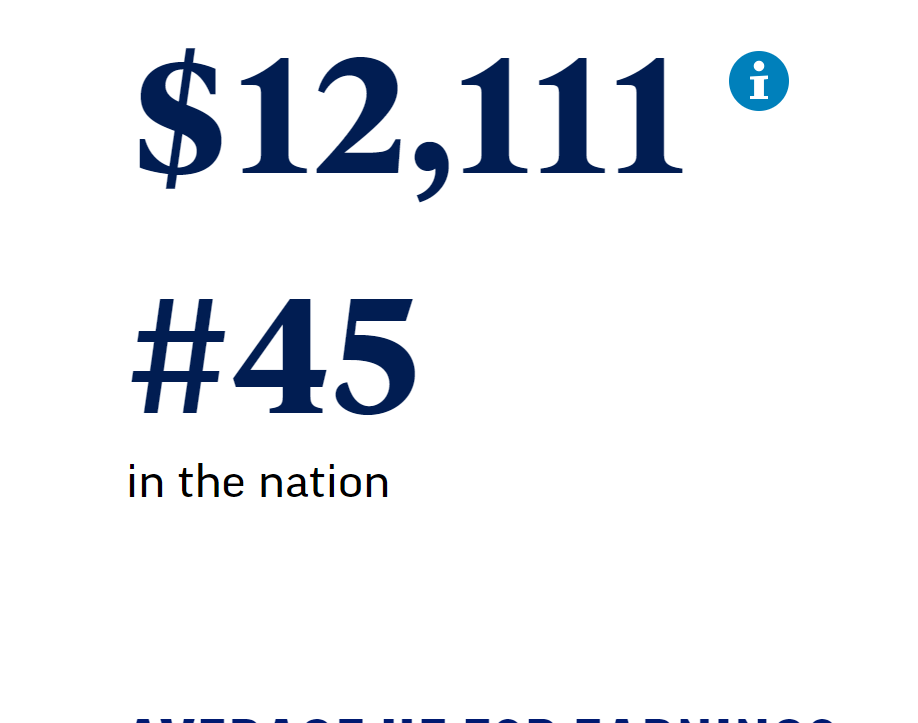Tennessee continues to fail when it comes to school funding

In spite of a new school funding formula AND Gov. Bill Lee’s promise to make Tennessee one of the top places to teach in America, the state continues to lag near the bottom in the nation in both per pupil spending AND teacher salary.
A new report reveals that average teacher pay in the state ranks Tennessee 44th in the nation – and among the lowest in the Southeast. Alabama, Kentucky, Georgia, South Carolina, North Carolina, and Virginia all pay their teachers more than Tennessee does.

When it comes to per pupil spending, Tennessee is also in familiar territory: Near the bottom.

This is just like . . . every other year.
Of course, Lee and his allies are fond of claiming everything is fine – that they’re doing a great job of funding schools. A few years back, I examined that claim up close and that takedown still applies:
Here’s some perspective from that 2021 article:
So, the TN House GOP is all excited about spending $616 million plus over TEN years, while the state is sitting on a $3.1 billion surplus this year alone! That means we could spend $616 million in teacher salaries THIS YEAR and still have more than $2.4 billion LEFT to spend. Read that again. Republicans are bragging about taking an entire decade to allocate in total what is available THIS year and could be funded while still leaving $2.4 billion for other priorities.
When it comes to school funding, Tennessee stands at a solid “F” and our policymakers seem to be just fine with that.





